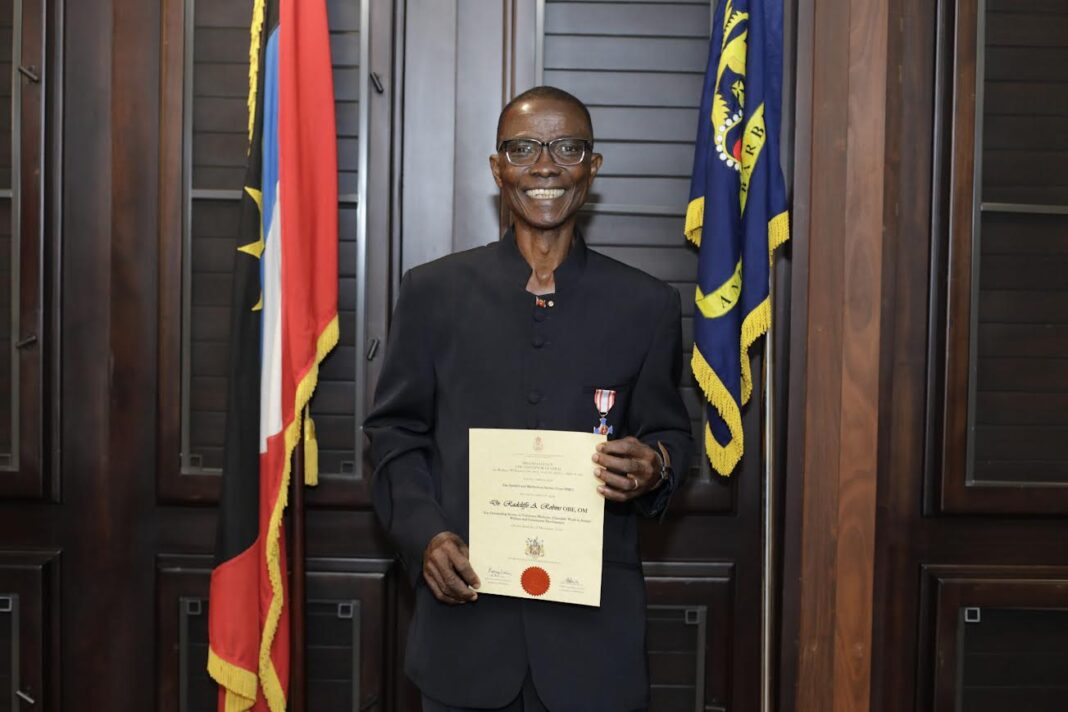Renowned historian, scholar, and veterinarian Dr Radcliffe Robins shared his insights on the significance of Black History Month during an interview on Observer AM, yesterday.
According to Dr Robins, Black History Month is crucial for raising awareness about the often-overlooked contributions of Black people to global civilization.
He pointed out that, historically, the focus of education has been on European history, with little attention given to the rich and extensive history of Africa and its people.
In primary schools, he noted, children are typically taught about the Vikings and European explorers, but African history is rarely, if ever, included. This lack of education has had lasting effects on individuals’ social and cultural development, he explained.
Dr Robins stated that while some may argue that every day should be dedicated to African awareness, it is still vital to dedicate a specific time each year to reflect on and honor Black history.
He believes that understanding the history of Black people, particularly in the Caribbean, is essential for the younger generation to grasp the struggles and triumphs that have shaped their present and future. “We need to be able to understand the peoples who have contributed to this in the Caribbean, in Antigua and Barbuda, and in the wider community. And if we make this knowledge available to the general public, to our communities, to our students, in an organized and systematic way, it could go a long way in diminishing the difficulties that we have.”
He also discussed how the economic exploitation of Black people, particularly in the post-medieval period, has been central to the African experience. He pointed out that the economic foundations and the development of nations like the United States and European countries were built on the labor and exploitation of enslaved Black people. That, he said, continues to affect global economies to this day: “The economics of our existence is what is the most important aspect of our existence.”
He further stated that understanding this history is crucial to addressing the persistent social and economic inequalities that continue to affect Black communities around the world.
Dr Robins also highlighted the immeasurable contributions of Black people to civilization, pointing out that many foundational developments, such as the invention of writing and maritime exploration, originated in Africa. He stressed that these accomplishments are often overlooked or dismissed in mainstream historical narratives, which paint Africa as a primitive continent, “Human life and civilization originated in Africa,” he stated. “The African experience and African civilization are at the center of human development.”
Reflecting on how Black people can be better honored, Dr Robins called for a systematic inclusion of African history in the education system, particularly in places like Antigua and Barbuda.
He expressed frustration that many people in the Caribbean, especially young people, remain unaware of the important contributions made by their ancestors. He stressed that in order to move forward as a society, it is essential to teach these stories in schools and beyond.
“There are two things that matter to me and that I think are important is that we must become Africanized in our thinking. And to me, it is a shame that here in Antigua and Barbuda, Africa and our African experience does not form part of the basis of our education system. But it is even worse than that. It doesn’t even form part of our own Antiguan and Barbudan history. And I think we’ve reached the point. I think we are all sufficiently mature socially and from the perspective of education to understand that this must be the fundamental aspect in our schools.”
He continued, “And when we do it, that history and that education does not begin with slavery. We must understand that we need to go back to the beginning of human time and human civilization and bring it forward so that our experience of slavery in the Caribbean and in other parts of the world is only a part of that continuum and only a very, very, very, very short part. And the role that other peoples and other countries have played in this that we must now cast off.”
Looking ahead, Dr Robins reiterated his major concern for the younger generation, lamenting the lack of education on African history and culture, not just in the Caribbean, but worldwide, which has led to a disconnect from the rich heritage but must serve as the foundation for future growth.




